Is you mother emotionally unstable? If you have an emotionally unstable mom, dealing with the effects of it can be challenging to say the least; it often leaves you with traumatic memories and complex emotions. However, you need to find ways to heal for your own emotional and mental well-being.
Explore 7 strategies that can greatly help you cope with an emotionally unstable mom.
Related: Raised By A Borderline Mother: Signs, Types, Effects, And How To Deal
Do You Have An Emotionally Unstable Mom?
Mom.
For many this word brings with it childhood memories of feeling safe while being tenderly tucked into bed, of band-aids and hugs when you scraped your knee, or of wise advice given when you fell in love for the first time.
You watched your mom and learned from her; she was committed to family, friends, work, church, or community…but mostly to you, her child. Her love was unconditional and no matter what life might throw at you as you grew into adulthood, she always provided a safe place to land.
Sadly for others, however, their memories share little resemblance to this ideal Mom.
Instead, your childhood life was fraught with ridicule from your mother. Disdain. Screaming. Accusations. Or eerily quiet hostility. Maybe you could not get out of the line of fire, everything was your fault — or you seemed completely invisible to her.
And sadly, perhaps this dynamic still exists.
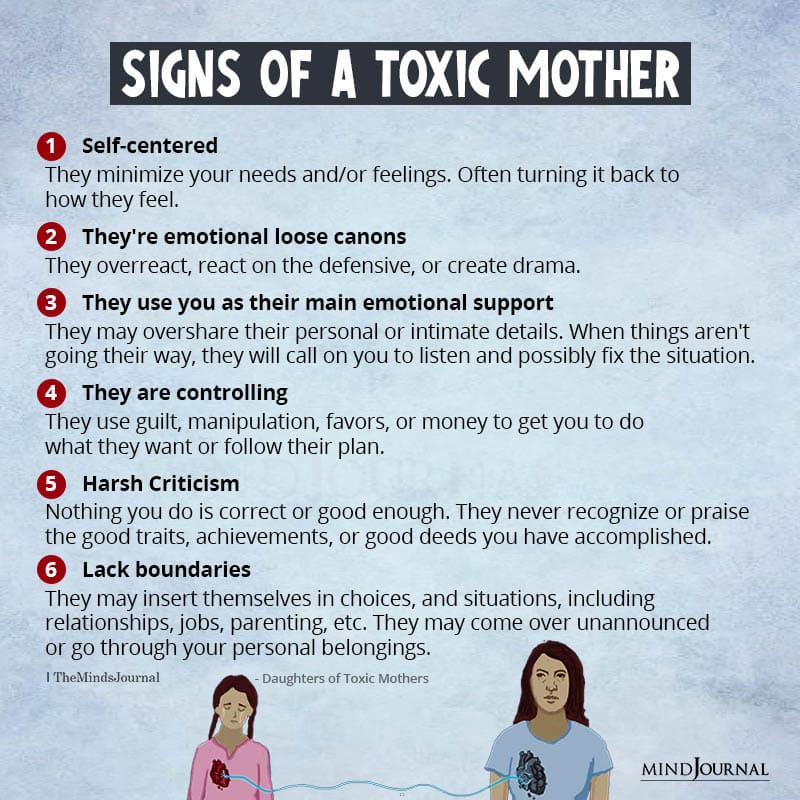
Could it be Borderline Personality Disorder?
Your mother may suffer with what is termed Borderline Personality Disorder (BPD); these women have a way of relating to self and others that’s intense and unpredictable, often filled with severe mood swings…and actions that match.
Yet to others not involved with her on an intimate level, she can look quite normal and highly productive.
As a child, you didn’t know how to feel Perhaps you still don’t.
“I never know what to expect. I don’t trust her. She can suddenly just flip out.”
“She says it didn’t happen, that my memory is wrong and that she knows she’d never do that.”
“I feel so guilty and I can’t confront her, can’t be honest with her. She thinks we’re so close.”
(Quotes taken from the book “Understanding The Borderline Mother,”)
Your bond with your mom is complex and highly complicated. When it’s good, it can be very good. Almost too good. But inevitably, the drama will unfold again; manipulation, neediness, or guilt trips will return – unless she’s sought treatment.
7 Steps to Take If Your Mom’s Emotions Are Unstable
But.. you can also feel that you still desire a relationship with her. You may want her to know your own children, but not to influence them negatively. You have to figure out how to be in the relationship as an adult, not as a child with no power over how the relationship is shaped.
So how do you figure out how to be in her presence and continue to have a relationship with her without being sucked into the vortex of her emotions?
Related: 10 Common Triggers Of Mom Rage And How To Tame The Storm
1) Read books that provide strategies.
For borderline personality, “Understanding The Borderline Mother,” is a wonderful resource, as is, “Stop Walking On Eggshells”. For understanding narcissism “Lost In The Mirror” “Disarming The Narcissist” and “Trapped In The Mirror” are great books.
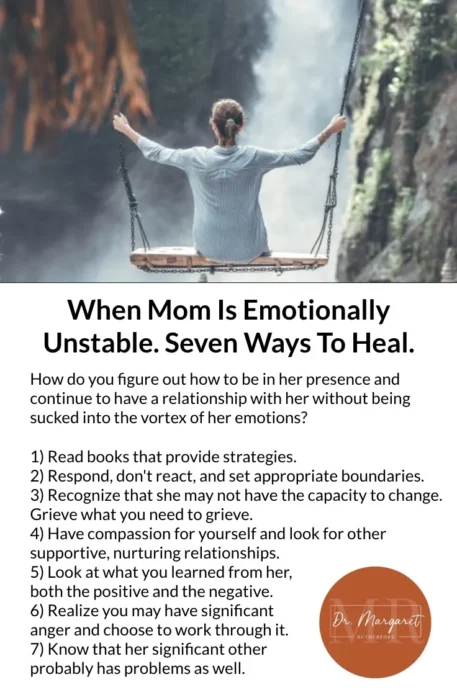
In reading, you’ll hopefully discover comfort in understanding the behavioral patterns your mom displays are a product of her disordered thinking and lack of emotional regulation.
Reading stories of others who’ve experienced similar relationships with their mothers can help you feel less alone; it’s helpful to recognize that it’s not just you.
And they can suggest a direction to take and boundaries to establish.
2) Respond, don’t react, and set appropriate boundaries.
Spend some time considering just how you want to have a relationship with her, what you can rationally expect from her, and how to set boundaries with her.
The most fundamental way you can achieve this is by deciding what discussions you’ll participate in, and ones you will not. That will help you have a much greater sense of power and control in your dynamics with her.
If you have a hard time sticking to your decisions and find that you continue to emotionally react with your mother and are unable to stay in control, working with a therapist can be very helpful.
They can assist you in identifying what your automatic reactions (triggers) are and help you change them into less reactive ones.
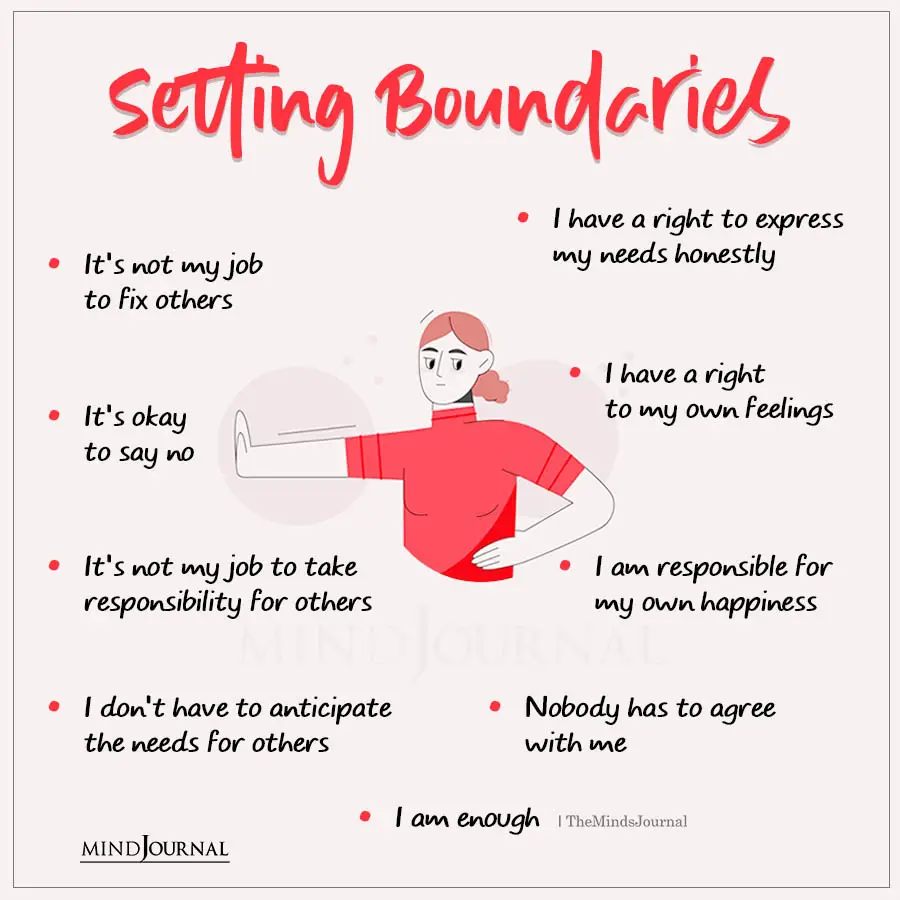
3) Recognize that she may not have the capacity to change. Grieve what you need to grieve.
She may be living a miserable life, but not know or have the insight to change her belief system. She’s even less likely to understand the impact of her behavior on you and others.
Thus, you have to grieve. You may never have the mother-child relationship you desire with her. If your expectations change as you realize she doesn’t have the capacity to make the changes you would love, your own life may be made more calm and less chaotic.
In turn this can allow you see what you can enjoy about the relationship as it exists. And of course, if she begins treatment or talks about considering it, give her lots of support.
Related: 7 Surprising Positive Aspects Of BPD
4) Have compassion for yourself and look for other supportive, nurturing relationships.
You can find other relationships that can be healing. Perhaps you can turn to the mother of a good friend, an older neighbor, or your mother-in-law for a kind of maternal energy.
Realize that your mother may feel betrayed by this and have great difficulty knowing that you’re growing closer to someone else.
A healthier mom would support you having others to support you. If she acts on those “betrayed” or “abandoned” feelings, you need to, once again, set boundaries.
5) Look at what you learned from her, both the positive and the negative.
Your mom may have taught you some good things, which you can truly appreciate.
However, you may have picked up some of her distorted and overly emotional reactions. Maybe she taught you to be unforgiving to friends if they’ve hurt you, even unintentionally.
Or perhaps she conditioned you to be suspicious of your partner and to always look for evidence of betrayal, whether you’re on your first date or have been married for decades.
There are many ways your thinking today could be the product of her illness; detecting this is hard to do and requires you taking an objective look at yourself. Freeing yourself from unhealthy thought habits will be liberating for you and allow you to have deeper connections with others.
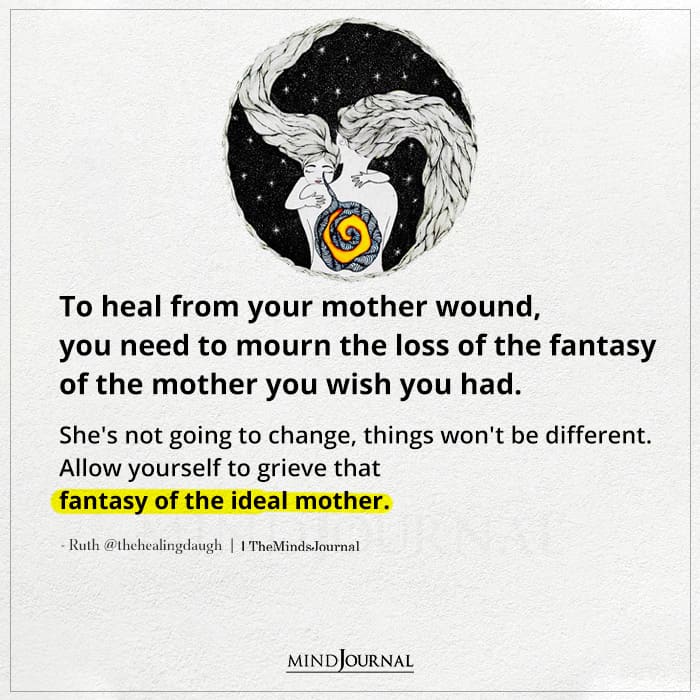
6) Realize you may have significant anger and choose to work through it.
You can’t go through something like this without anger. And those feelings are likely getting worked out in your other relationships, especially in your primary partnership. Perhaps in a healthy way. Perhaps not.
There are many ways to express anger in a way that moves you through it, and allows you to let it go. You need to find those ways, rather than justifying continued resentment or a sense of victimization. Those reactions will only make your own life unhappy and emotionally stuck.
Related: 4 Types Of Borderline Personality Disorder
7) Know that her significant other probably has problems as well.
Whether it’s your biological father, stepfather or someone she has been living with, they may be caught up in the chaos as well. You can stay angry that they’re not “doing anything,” or you can more clearly see their dysfunction as well.
Check out Dr. Margaret’s Tedx Talk on YouTube, and also don’t forget to tune into her beloved podcast, The Self Work Podcast.
Written By Dr. Margaret Rutherford
Originally Appeared On Dr. Margaret Rutherford
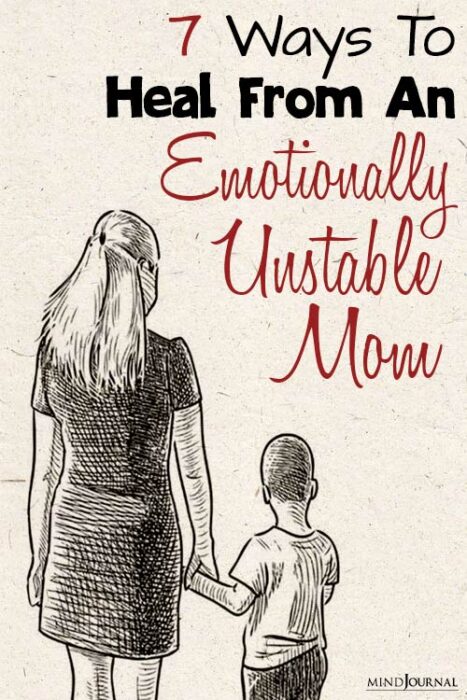
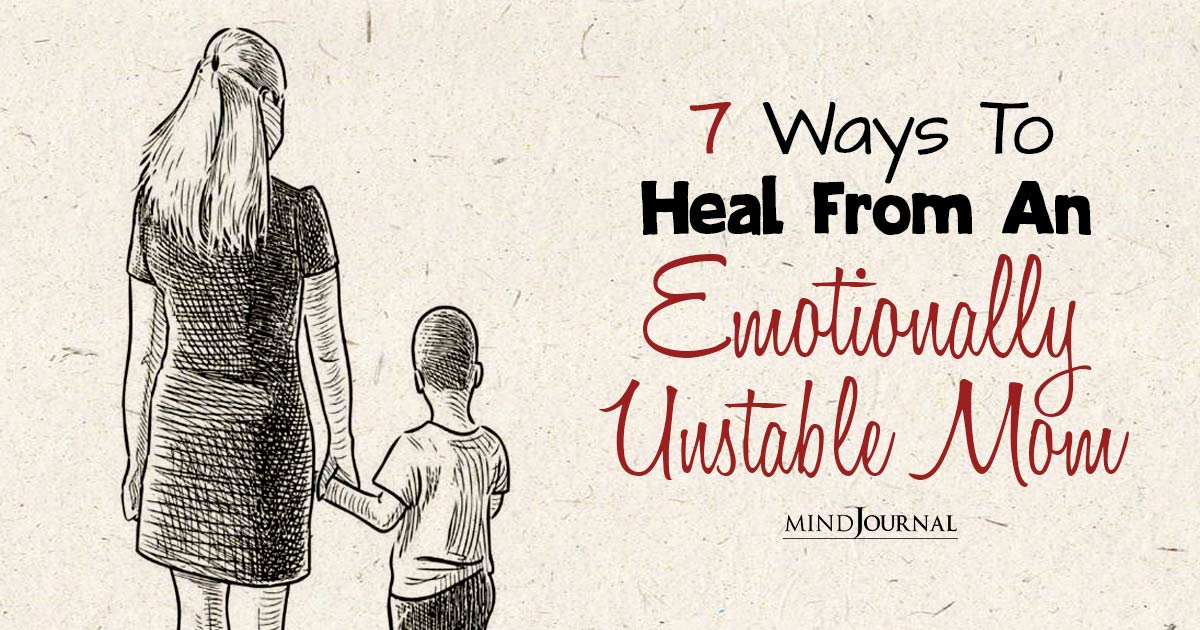







Leave a Reply
You must be logged in to post a comment.